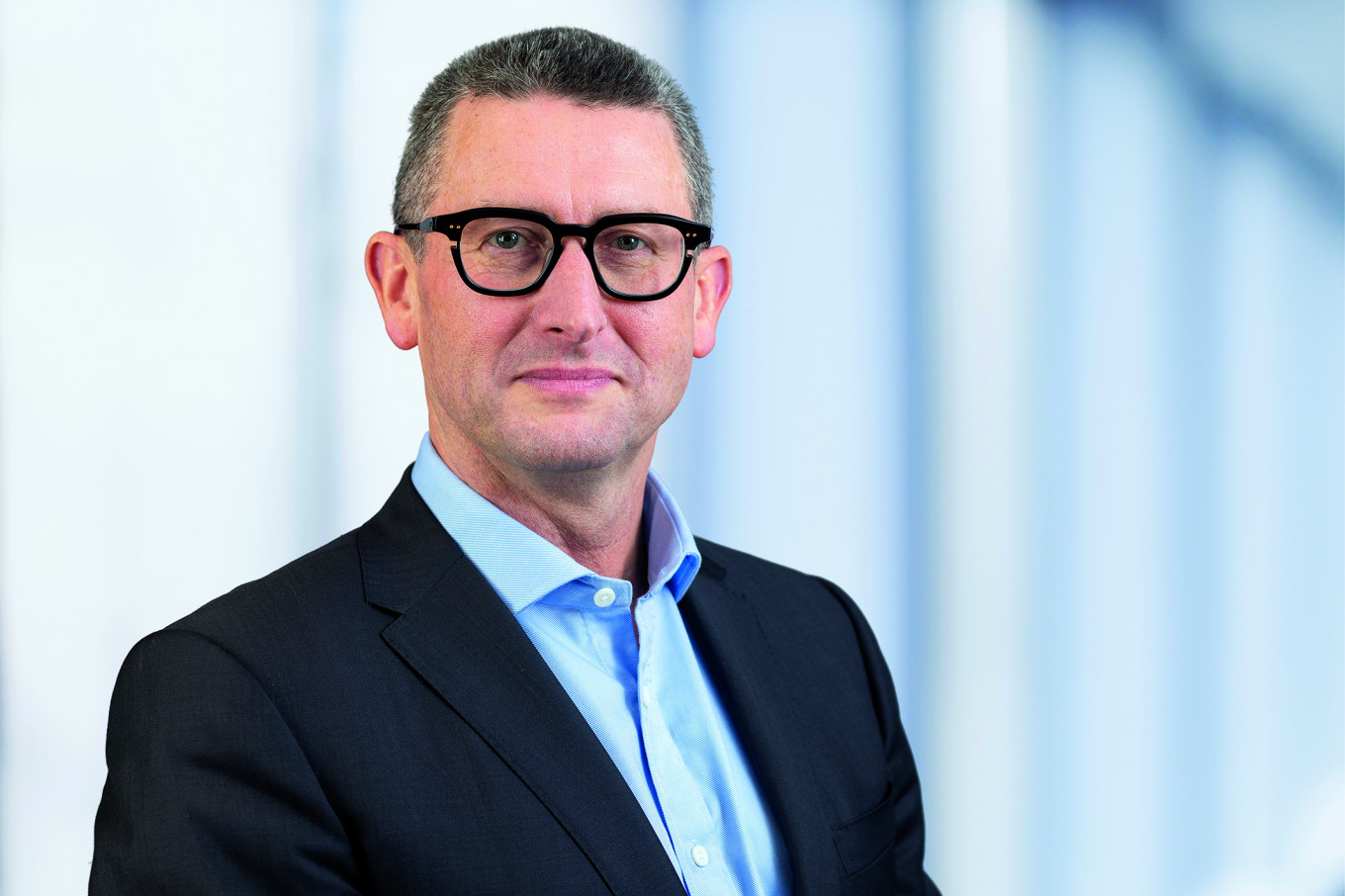Popular Reads
Top Results
Can't find what you're looking for?
View all search resultsPopular Reads
Top Results
Can't find what you're looking for?
View all search resultsInchcape bets big on Indonesia
Duncan Tait, global executive CEO of Inchcape, spoke to The Jakarta Post’s Ruth Dea Juwita on a visit to Jakarta about the UK-based automotive dealership’s global distribution business, as well as its local subsidiary’s strategy for claiming a larger share of the premium car market.
Change text size
Gift Premium Articles
to Anyone
L
ast year, global automotive multi-brand distributor Inchcape acquired 70 percent of Mercedes-Benz subsidiaries in Indonesia through a joint venture with local partner PT Indomobil Sukses Internasional, which holds the remaining 30 percent.
To increase its market share in the country, PT Inchcape Automotive Indonesia recently began assembly of China’s Great Wall Motor (GWM) products at its plant in Wanaherang, West Java, which primarily focuses on Mercedes vehicles.
Duncan Tait, global executive CEO of Inchcape, spoke to The Jakarta Post’s Ruth Dea Juwita on Sept. 12 during his visit to Jakarta about the British automotive dealership’s distribution business, as well as about the local subsidiary’s strategy for claiming a larger share of the premium car market.
Question: What is the goal of your visit to Indonesia?
Answer: Every beginning of the year and in September are my [scheduled] Asia Pacific trips, usually lasting three to four weeks. During these trips, I visit key markets and meet with important partners like Singapore, a critical market for us, and also Indonesia, where we’ve invested heavily over the past three years and will continue to do so.
This week, we’re launching the assembly line for Great Wall Motor at our Wanaherang assembly plant. It’s an exciting development. The local team will learn from the group executives, while the group executives can learn what’s happening on the ground in Indonesia.
What are your plans following the launch of the GWM manufacturing plant?
When we bought the Mercedes business in Indonesia [in a transaction] completed last year, we knew the [Wanaherang] assembly plant was built for a much bigger business. Our intention is to grow the Mercedes business over time, because that’s what we do, as well as to expand our mass premium segment to surpass 20,000 vehicles annually.
The assembly plant is staffed by highly talented individuals, and we believe that, over time, we can utilize its spare capacity to further develop the business in Indonesia. That's exactly what we've done for GWM.
What happens beyond that, who knows? But our main objective is to achieve brilliant assembly with a brilliant OEM [original equipment manufacturer], so that we can grow our market share in Indonesia.
How do you position GWM, a premium EV brand from China, against your established Western brands?
What we’re doing in Indonesia is launching a range of new energy brands as part of our journey toward a zero-carbon future, [knowing] this market will grow significantly over time.
We initially focused on the premium [segment], which represents only about 20,000 of the 919,000 vehicles sold this year. The launch of GWM gives us access to a larger market of 150,000 to 200,000 vehicles annually, and we're confident we’ll claim our share of that with Great Wall. The success of the Tank in its first few months shows our growth potential.
Now that you’re manufacturing, is Inchcape still an automotive distribution company?
We are principally the leader in automotive distribution, and that’s how you should think of us.
Our assembly operations exist to support our distribution business, but we only engage in assembly in a limited number of locations, typically in partnership with others. It's clear that here in Indonesia, we need local assembly. We have a joint venture with Indomobil Group, which provides invaluable local knowledge essential for our business.
Fundamentally, our business model revolves around managing markets for our OEM partners. We enhance performance through four key areas: Leading in digital customer experience, utilizing digital data analytics, driving processes globally with great people and driving growth in our distribution efforts.
What’s the latest technology you have in car distribution?
Our digital experience platform (DXP) Digital Direct is a one-stop end-to-end platform that allows customers to buy a vehicle, secure insurance and finalize financing seamlessly, resulting in a significant boost in customer satisfaction. In 2019, the average buyer visited a showroom four times; by 2024, that number has dropped to just 0.9 visits globally.
Our digital and data journey is very important, as we are directly responding to consumer purchasing behavior. It’s no surprise that most buying journeys now start online. While there was a time when the industry believed everyone would buy vehicles solely online, that hasn’t happened. However, we see that customers who experience a seamless journey—from online to the physical dealership and back again—report the highest levels of satisfaction.
With declining car sales this year, is this a good time to be doubling down on the premium segment?
You're right, the market has shrunk slightly in 2024, but we don't enter markets for just one year. The market will move up and down, but we're here for the long haul.
We’re laying the foundation for a strong business in Indonesia. Back in 2021, we tested the waters by [acquiring] Jaguar Land Rover to better understand the market. Since then, we’ve added the Harley Davidson and Mercedes business, and now we’re launching GWM.
We enter the market with a vision to take a 10 percent market share. We can't get there on day one, but our goal is to achieve that over time. By the end of this decade in Indonesia, I aim for us to get from less than 1 percent to 5 percent of the [national] market. We’re betting big on Indonesia, so don’t let us down.
Do you have any plans to introduce new brands to Indonesia in the near future?
With 280 million people and GDP growth around 5 percent, we believe Indonesia is set for long-term expansion. This growth pattern leads to increased industry volume, as we've seen globally—strong GDP growth drives industry growth.
We need to carefully select mobility partners to bring to the Indonesian market that can support the journey toward a zero-carbon future, allowing us to grow alongside them while serving Indonesian consumers. So yes, I think we should launch more brands here.
Will you also introduce lower-priced EV models alongside your premium offerings?
Over time, yes. We've started with premium in Indonesia and will continue to expand into additional segments.
The launch of GWM's Tank gives us access to what we call the mass premium segment, which helps us further expand the market. Once we're successful there, we can build further. The approach depends on the market dynamics. In some regions, we start with mass-market entry and then move upwards.










